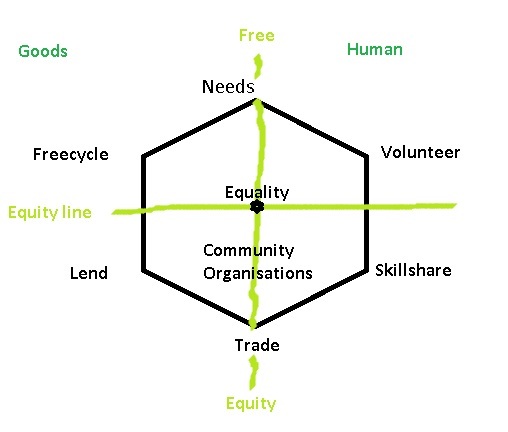How might the six human needs identified by Robbins align with the nine needs articulated by Max-Neef?
How might an understanding of human needs and the emotional strength of individuals improve the people’s ability to achieve more sustainable outcomes?
The first need identified by Robbins is ‘certainty’ - this would seem to align with things like subsistence and protection (if we are fortunate to have a roof over our heads, and access to food and water). Robbins ‘uncertainty’ (around the need for variety and surprise) could align with leisure, creativity, and possibly affection (in terms of variety in our human relationships, friendships…). ‘Significance’ and ‘connection/love’ (in Robbins’ list of needs) could be compared with identity, participation, and affection in Max-Neef’s model. That takes us through the four needs which Robbins identifies as ‘needs of the personality’.
In Robbins’ list of six human needs, he identifies the final two (‘growth’ and ‘contribution beyond ourselves’) as ‘needs of the spirit’, or needs for fulfilment. Many elements in Max-Neef’s model could align with these, including participation, leisure, understanding, creativity, identity, and even freedom.
Understanding the importance of human needs and emotional strength can help improve people’s ability to achieve more sustainable outcomes by understanding how decisions and actions impact on human needs long term, but also by understanding that, if we don’t have the means to satisfy our basic needs (shelter, food and water, sense of identity…), we can’t focus on long-term thinking / planning or, as Robbins, puts it, “contribute beyond ourselves”.
Tony Robbins / Max-Neef
Certainty / Subsistence, Leisure
Uncertainty / Protection
Connection & Love / Affection, Participation
Growth / Understanding, Identity, Freedom
Contribute beyond ourselves/ Creation
How might an understanding of human needs and the emotional strength of individuals improve the people’s ability to achieve more sustainable outcomes?
We are the community! Respect and become aware of all individuals (and their needs). Emotional strength of individuals will damper some irrational behaviour and decisions associated with emotional weakness. Emotional strength brings a sense of rationality to community exchanges and interactions. Emotional strength is allowing emotions to be dealt with appropriately, and not negatively interfering with exchanges or interactions.
Our needs can be rationalised. Our needs are limited, specific, and identifiable. Also, regarding equality, our exchanges also can be rationalised.

Fig. 1. Regarding Equality, the Community exchange system, By Gareth Chivers
It is the Needs (sum of all individual needs = community needs) that drive the whole system of exchange. It suggests the importance of identifying and assessing needs. Secondly, community organisations (and government and business) exist within the network of exchanges. Their position enables them to identify, organise and facilitate exchanges to meet need.
We all have needs, many have similar needs. Needs that are not met by the individual can usually be resolved with exchanges. We collectively have the potential solutions to all of our needs. The key is positive interactions and exchange - Sharing.
The Library of Things: Although not a permanent solution to needs in itself, lending through a library of things does promote equality. Its purpose is ensuring that all individuals have reasonable access to fundamental tools and resources, encouraging participation and personal growth, and raising awareness and respect for the needs of others.